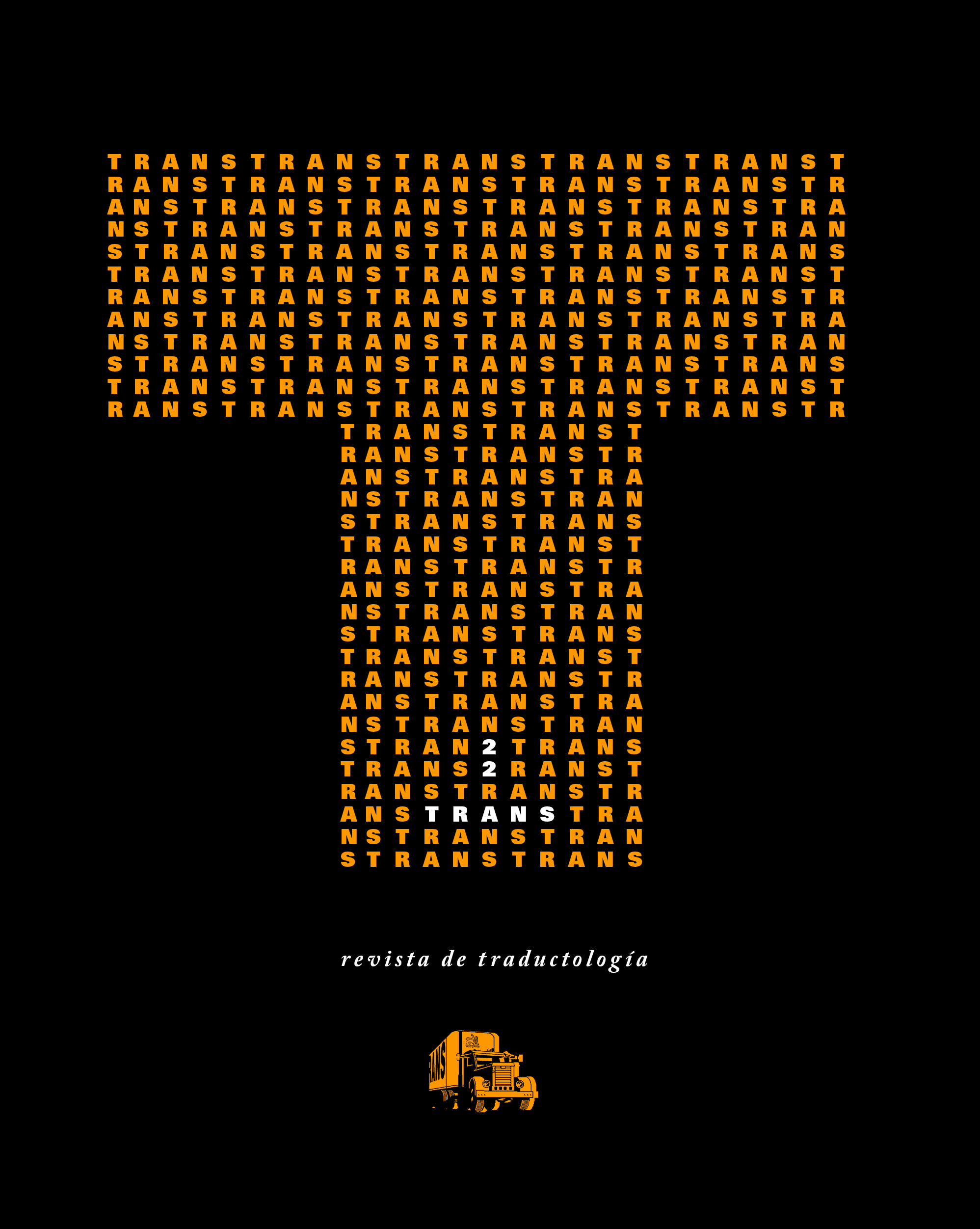What could literature change for translators?
DOI:
https://doi.org/10.24310/TRANS.2018.v1i22.3628Keywords:
Translation, translation poetics, reading, creative process, cultureAbstract
In his lecture Was soll und kann Literatur verändern?, Erich Fried spoke about his readings and experiences, what he asked from them and how they affected his writing. In the same way writers develop their poetics, translators develop theirs when translating. There is a certain parallelism in their creative process, guided and restricted by their ability to create verisimilitude, fuelled by the things they read. Today, when the didactics of Translation focus on practical abilities and technology, leaving aside general culture, recent graduates tend to lack the criteria to solve translation problems in a resolute and consistent way. Literature could give them the tools to solve such problems.
Downloads
Metrics
Publication Facts
Reviewer profiles N/A
Author statements
Indexed in
-
—
- Academic society
- N/A
- Publisher
- Universidad de Málaga
References
ADORNO, Theodor W. (1967): «La educación después de Auschwitz», conferencia originalmente realizada por la Radio de Hesse, el 18 de abril de 1966; publicada, posteriormente, en THEODOR W. ADORNO Zum Bildungsbegriff des Gegenwart, Fráncfort del Meno: Diesterweg, 111 y ss.
ADORNO, Theodor (1977): Gesammelte Schriften Band 10: Kulturkritik und Gesellschaft I/II, Fráncfort del Meno: Suhrkamp Verlag.
BERNÁRDEZ, Enrique (2000): «Traducción y cultura general», El Trujamán del Centro Virtual Cervantes, 16 de mayo, <http://cvc.cervantes.es/trujaman/anteriores/mayo_00/16052000.htm> [consulta: 13.XII.2017].
CASTRO, Xosé (1999): «La cultura traducida», El Trujamán del Centro Virtual Cervantes, 18 de noviembre, <http://cvc.cervantes.es/trujaman/anteriores/noviembre_99/18111999.htm> [consulta: 13.XII.2017].
FRIED, Erich (1983): «Was soll und kann Literatur verändern?», Wespennest, 52, 76-83.
FRIED, Erich (2007): Gedichte, Múnich: DTV, 1.ª ed.: 1995.
GUEVARA, Ernesto (1965): «El socialismo y el hombre en Cuba», carta publicada por Carlos Quijano en el semanario uruguayo Marcha, 12 de marzo.
HURTADO ALBIR, Amparo (2008): Traducción y Traductología. Introducción a la Traductología, Madrid: Cátedra, 1.ª ed.: 2001.
KOVACSICS, Adam (2011): «Osip Mandelstam: palabra, cultura, traducción», El Trujamán del Centro Virtual Cervantes, 18 de agosto, <http://cvc.cervantes.es/trujaman/anteriores/agosto_11/18082011.htm> [consulta: 13.XII.2017].
PAZ, Octavio (1971): Traducción: literatura y literalidad, Barcelona: Tusquets.
ROUND, Nicholas (2005): «Translation and its Metaphors: The (N+1) Wise Men and the Elephant», SKASE Journal of Translation and Interpretation, 1 (1, 2005), 47–69.
SAAVEDRA FAJARDO, Diego de (2008): República literaria, ed. de Fco. Javier Díez de Revenga, Murcia: Real Academia Alfonso X el Sabio, [consulta: 13.XII.2017].
SCHÄFER, Katrin (1998): «Die andere Seite»: Erich Frieds Prosawerk. Motive und Motivationen seines Schreibens, Viena: Ed. Praesens.
SCHWANTZ, Dietrich (2005): La cultura. Todo lo que hay que saber, trad. de Vicente Gómez Ibáñez, Madrid: Suma de Letras.
STROSETZKI, Christoph (1997): La literatura como profesión. En torno a la autoconcepción de la existencia erudita literaria en el Siglo de Oro español, Kassel: Reichenberger.
TATAY, María (2016): «Trabajadores y millennials», vídeo de la intervención de María Tatay en la 13.ª edición del seminario de charlas ultrarrápidas Ignite Valencia, celebrado en Valencia el 30 de junio de 2016, publicado el 18 de julio, <https://www.youtube.com/watch?v=bvHTzhX1ZUA>, [consulta: 13.XII.2017].
Downloads
Published
How to Cite
Issue
Section
License
All contents published in TRANS. Revista de Traductología are protected under the Creative Commons Attribution-NonCommercial-ShareAlike 4.0 International (CC BY-NC-SA 4.0) license. All about this license is available in the following link: <http://creativecommons.org/licenses/by-nc-sa/4.0>
Users can copy, use, redistribute, share and exhibit publicly as long as:
- The original source and authorship of the material are cited (Journal, Publisher and URL of the work).
- It is not used for comercial purposes.
- The existence of the license and its especifications are mentioned.
- ShareAlike — If you remix, transform, or build upon the material, you must distribute your contributions under the same license as the original.
There are two sets of authors’ rights: moral and property rights. Moral rights are perpetual prerogatives, unrenounceable, not-transferable, unalienable, imprescriptible and inembargable. According to authors’ rights legislation, TRANS. Revista de Traductología recognizes and respects authors moral rights, as well as the ownership of property rights, which will be transferred to University of Malaga in open access.
The property rights are referred to the benefits that are gained by the use or the dissemination of works. TRANS. Revista de Traductología is published in an open access form and it is exclusively licenced by any means for doing or authorising distribution, dissemination, reproduction, , adaptation, translation or arrangement of works.
Authors are responsable for obtaining the necessary permission to use copyrighted images.













21.png)
